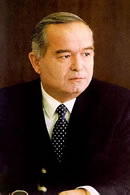Among the agreements announced by Presidents Obama and Medvedev on 6 July is one for the transit through Russia of “lethal” military supplies bound for the armed forces in Afghanistan.
Could this be a breakthough in rail transport? “Non lethal” military freight has reportedly been sent by train via Russia and Uzbekistan to Hayratan this year. Germany already has an agreement to ship lethal materials by rail through Russia – though Uzbekistan and Kazakhstan were less keen on allowing transit, and it is unclear if any has actually been transported.
JOINT STATEMENT BY PRESIDENT OF THE UNITED STATES OF AMERICA BARACK OBAMA AND PRESIDENT OF THE RUSSIAN FEDERATION D. A. MEDVEDEV CONCERNING AFGHANISTAN
…we intend to make active use of the transit route through the territory of the Russian Federation for deliveries of property and equipment for the needs of the international forces operating in Afghanistan
…
We express our willingness to explore issues related to Russian-U.S. interaction and cooperation in restoring the transportation, energy, and industrial infrastructure of Afghanistan.
Source: Whitehouse.gov press release 2009-07-06
PRESS CONFERENCE BY PRESIDENT OBAMA AND PRESIDENT MEDVEDEV OF RUSSIA
PRESIDENT MEDVEDEV: The subject of U.S.-Russian cooperation in Afghanistan is extremely important. It is for this reason we paid so much attention to the discussion of this problem, and we have just signed an agreement that concerns transit. It’s an important subject and we will of course continue cooperation with our American counterparts.
As concerns the current situation, it is — really is not simple. I am not trying to say that it is being worsens, but in many aspects the progress is not available or is insignificant. But we value the efforts that are being made by the United States together with the other countries in order to prevent the terrorist threat that was emanating and still coming from the Afghan soil.
We are prepared in this sense to a full-scale cooperation with our U.S. and other partners, including in transit areas. We are prepared to help in the various aspects. I don’t know to what extent — how quickly the situation will improve. It depends to a large extent to the development of the political system in Afghanistan, to what extent the Afghan government will achieve successes in the economy — and it’s not a simple task.
…
PRESIDENT OBAMA:
…And we’re going to have to think regionally in terms of how we approach these problems. Obviously there are countries along the border of Afghanistan and Central Asia that are of deep strategic importance, and it’s very important that we also include them in these conversations about how we can move forward.
But I just want to thank again the Russian government for the agreement for military transit. That will save U.S. troops both time and money. And it’s I think a gesture that indicates the degree to which, in the future, Russian-U.S. cooperation can be extraordinarily important in solving a whole host of these very important international issues.
Source: Whitehouse.gov press conference transcript 2009-07-06


